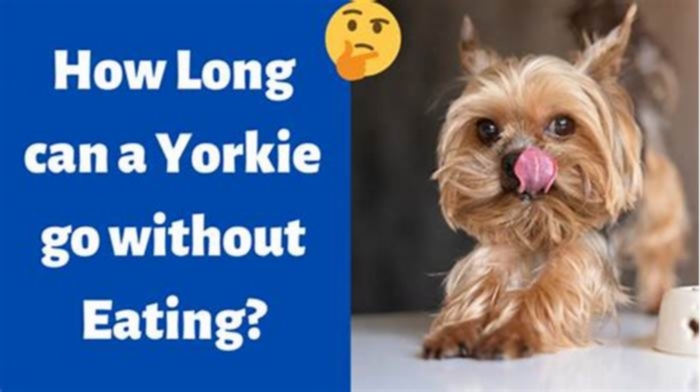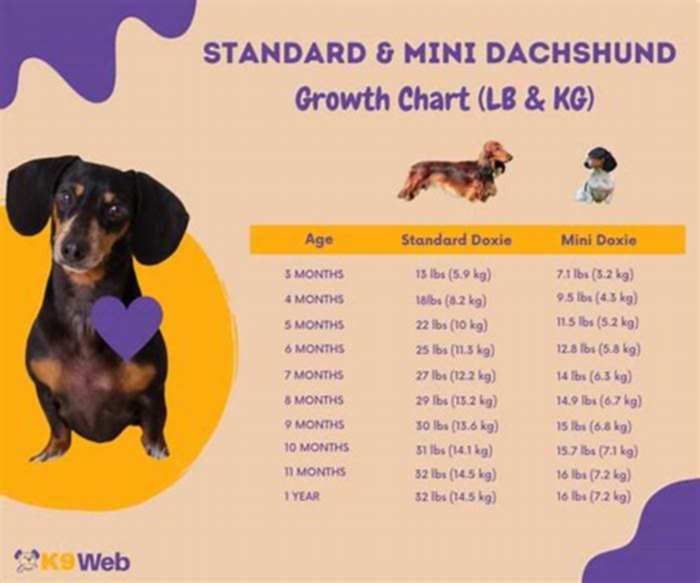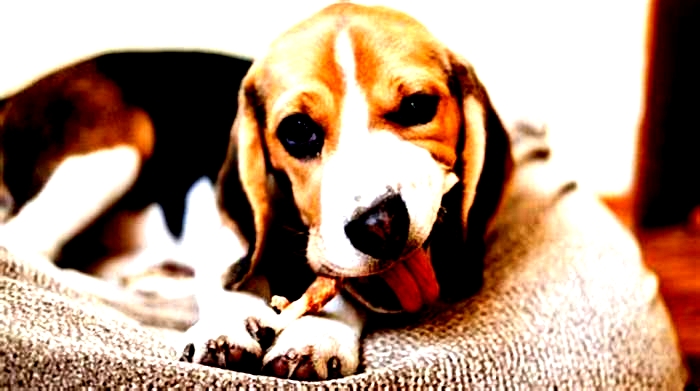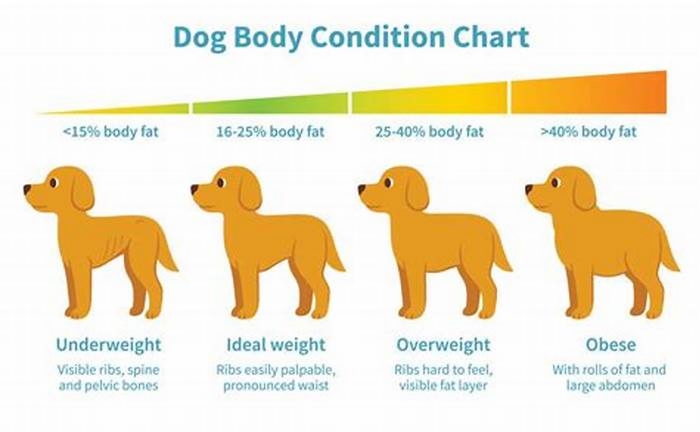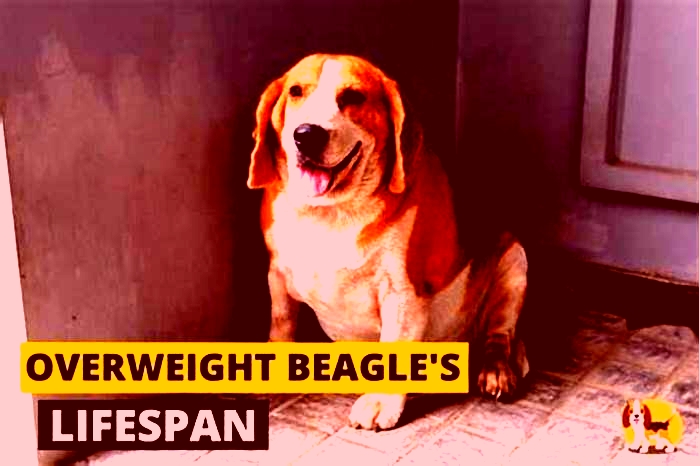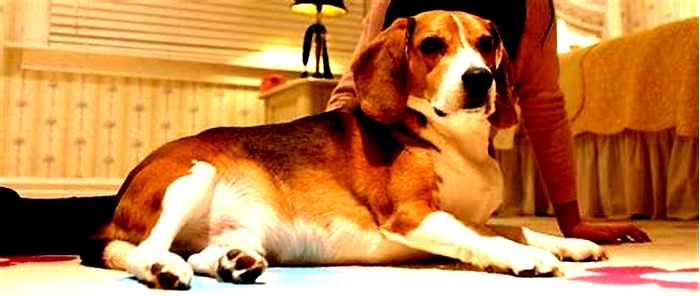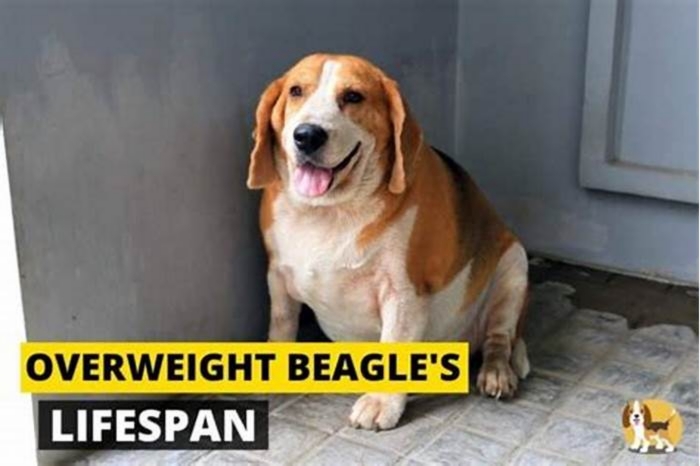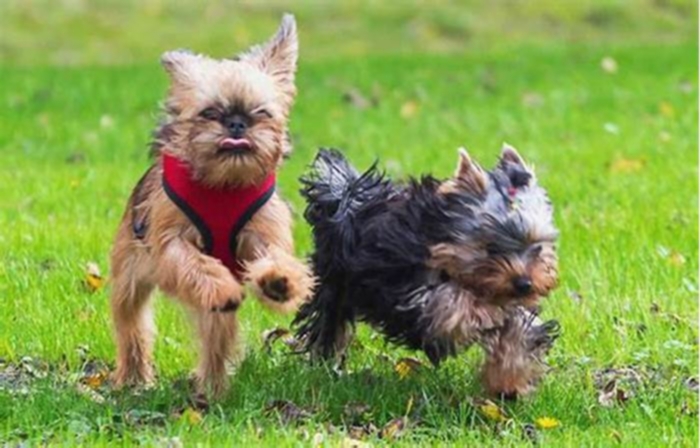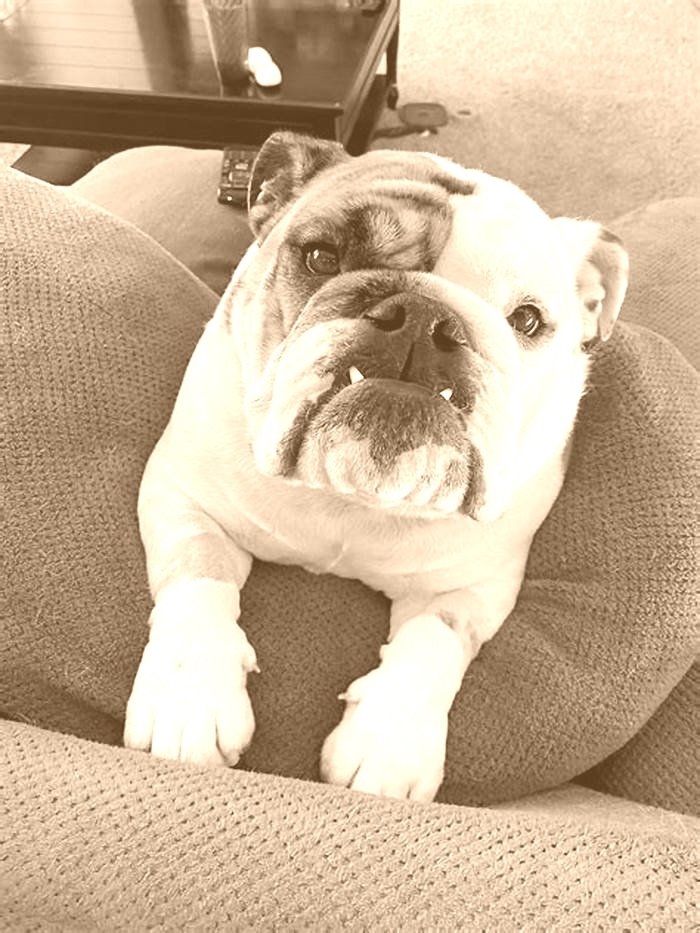How long can a dachshund go without eating
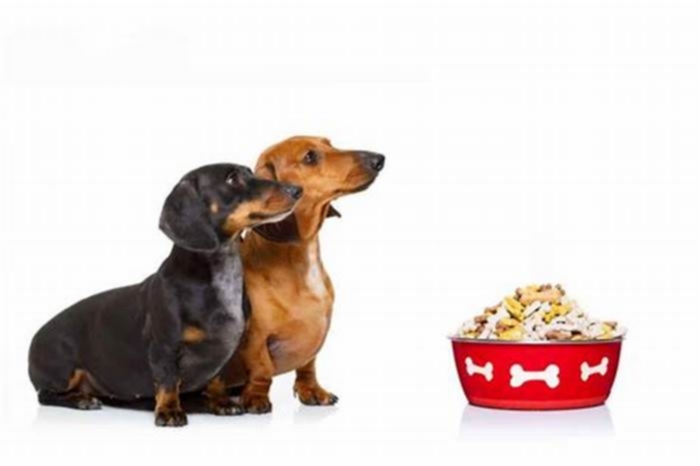
Dachshund Not Eating? Causes and Solutions You Need
Zack Keithy, our author, is a certified veterinarian technician (UC Blue Ash) for over 6 years (contact him here). The articles written here are based on his expertise and experience, combined with a review by our expert vet reviewers including Dr M. Tarantino. Learn more about us here.
When your dachshund isnt eating, it can be a cause for concern, but it doesnt mean that something is wrong.
They may just be going through a phase where their food preferences have changed, or maybe theyre just not feeling well.
There are several reasons why your doxie may not want to eat, but its important to understand that their unwillingness to eat does not necessarily mean theres an emergency brewing its just something that has happened in the past or is happening right now.
In this post, you will find the main causes of your Dachshund not eating, and tips to help reignite its appetite.
Medical Questions? Talk to a Veterinarian 24/7.Connect one-on-one with a licensed vet who will answer your questions in minutes.
Ask a Vet Nowor Schedule a home visit*Article may contain affiliate links to retailers like Amazon and Chewy. Learn more on our disclosure page.

7 Reasons Why Your Dachshund Is Not Eating Like Usual
No matter what the reason might be that your dog is not eating, you must ensure that it is well hydrated.
Dogs can go up to 5 days without eating, but they must have water.
If your Dachshund is not drinking as well, you must send it to the vet right away.
Your Dachsunds diet was recently changed
Your Dachshund may not be accustomed to the new diet if you recently changed it.
Even if it has been on the schedule in the past, dogs might be finicky eaters and refuse to eat when you try to feed them for any reason.
It can take your dog a few days to adjust if you recently moved from one brand to another.
Your Dachshund may have a toothache

When your dog refuses to eat, its critical to screen out dental problems.
A dog with a toothache may stop eating and start to lose weight.
Your Dachshund may exhibit chewing difficulties as a result of sore gums or tooth decay.
It may also vomit or sleep more than normal if its in pain.
Make a vet appointment as soon as you can if you believe your pet is experiencing dental problems and needs care.
Your Dachshund might have gone through emotional trauma
One potential reason that is overlooked often is the fact that your dog might be going through emotional distress.
If it turns out that your dog does not have an underlying medical disease, then stress or worry may be the reason for their reluctance to eat.
Moving into a new home, having a new baby (or even just having one around), changing routines and environments, or even adopting a new pet may all be stressful situations for your dog.
Your Dachshunds food might have gone stale
There could be a problem with the way youre fixing your dogs meals, for example.
If you leave cooked meat out at room temperature for longer than two hours (or even only one hour in the summer), bacteria may develop on it and make the meat hazardous to dogs.
As a result, you should always reheat leftovers before serving them again.
Even while some dogs dont mind eating old food, that doesnt imply its healthy for them.
As a result, you should always make sure your dog eats as soon as the food is presented.
Your Dachshund is getting too many treats
Dachshunds are known for being food hounds, but if you give them too many treats, they wont eat the right amount of food to keep them healthy.
A dachshunds diet should consist of good quality kibble or high-quality canned food (and not too many snacks!).
It could seem like a harmless habit if your dog has been consuming daily treats for some time, but it can potentially result in some major issues.
Both humans and dogs can develop obesity and other health problems from eating too much sugar.
If you want to give your dog something special, just dont overdo it!
Doggy says, you might like this too: Dog Ate a Wine Cork [What Should You Do?]
Your Dachshund could be sick
When you discover your dog isnt eating, pay close attention to how your dog behaves because some symptoms might not be as obvious.
I would advise taking your dog to the vet for a checkup to see whether he or she is ill if this continues for longer than two days.
You should not wait any longer if you notice any symptoms such as nausea, vomiting, or diarrhea, and prioritize going to the veterinary clinic.
Hey there, sorry to interrupt but I wanted to tell you about an online vet service Ive been using for years.
An in-person visit with one is great, but its not always an option.
Now, thanks to technology, you can speak to one without leaving your home.
Immediate access to expertsSchedule appointments easilyGot something to ask a vet? Talk to one anytime, 24/7.
START CHATTING NOW* Dont use this service for emergencies.
Alternatively, a vet can come out to you instead (exclusive to our readers: use THEVETS15 for 15% off).
SCHEDULE AN APPOINTMENT HEREThank you. The rest of the article continues below.
Your Dachshunds feeding schedule might be too short
I think this is a mistake that many new dog owners make, and totally understandable.
We all want our dogs to be well fed, but that can sometimes lead us to feed too much too often.
Consider when was the last time your Dachshund ate.
In general, it is recommended to feed your dog twice a day, 12 hours apart.
How to Get Your Dachshund to Eat?
Sometimes, it could be just that your doxie is being picky and refuses to eat anything you put in front of it.
Or it might be just a mood swing thing but this can go on for a day or two.
Here are a few things you can do to encourage it to start eating again.

Reduce the amount of treats it gets
Unfortunately, it may be you to blame if the main course doesnt whet your Dachshunds appetite because you gave it too much of its favorite snacks.
It also encourages picky eating and sloppy table manners.
Let your Dachshund have plenty of exercise
Your dog will likely eat more regularly and with greater enthusiasm, if you allow him to exercise enough as opposed to when he doesnt.
Dogs that exercise regularly experience fewer stomach problems as well as improved mental health.
Let it have access to plenty of fresh drinking water
Keeping a clean bowl of water in the room where your dog spends most of its time will help it stay hydrated and avoid the risk of dehydration.
Not only that, but it will also help keep their digestive system working properly.
Make sure youre feeding your Dachshund the right food
Its important to make sure that what youre feeding them is high quality and healthy.
Dogs should never be fed just one type of food consistently.
Instead, they should be given a variety of foods that contain different nutrients so that they get all the nutrients they need from different sources.
Mix up the food you are feeding your Dachshund
One way that you can mix up what kind of food your dog eats is by mixing in some wet food with dry kibble.
You can do this by putting some wet dog food into a bowl with the dry kibble and mixing them together so that it forms one big mixture.
This will give your dog something new to taste while still giving him something familiar so he doesnt get too excited about eating something new right away!
Feed your Dachshund by hand
Hand-feeding your dachshund is a great way to bond with them and keep them from getting distracted by other things in the room.
It also brings them lots of comfort and can be a great method to encourage them to start eating.
Just dont make this a permanent habit but rather one of last resort.
If they get too accustomed, your original problem might just get worse!
Try not to change your Dachshunds diet too abruptly
Slowly introduce new foods into their diet by mixing them with the food they already eat.
In this way, you can increase the amount of new food over time until its entirely replaced by the old food.
Most dog food manufacturers also provide handy advice on how best to switch out your dogs diet.
Give your Dachshund more time
Make sure youre giving your Dachshund enough time to eat.
Many dogs get frustrated if they are rushed through their meals, and this can lead to them refusing food altogether.
You may also want to consider feeding him in smaller portions throughout the day rather than one big meal at nightthis way he wont feel so full after finishing one plateful!
Do you have a Boston Terrier that is not eating too?
How Long Can a Dachshund Live Without Food?
Most dogs, including Dachshunds, can go up to 5 days without food.
However, this is highly dependent on whether it has access to fresh drinking water or not, without which it may not even last 2 or 3 days.
While it may survive for that period of time, it will be severely dehydrated and show signs of serious illnesses such as lethargy and becoming very weak.
Be sure to keep a very close eye on your Dachshund!
When Should You Bring Your Dachshund to the Vet if It Does Not Eat?
In most cases, your Dachshund should recover its appetite quickly and if it does not show any signs of obvious distress, you can do without a visit to the vet.
However, there are certain symptoms that clearly indicate your dog is in trouble, in which case you should be seeing your veterinarian right away.
- Diarrhea
- Vomiting
- Gagging/coughing
- Not eating for more than 24 hours
- Not drinking any water
- Lethargy
- Swollen gums
In Conclusion: What to Do if Dachshund Not Eating?
There is usually no need to panic when you notice your Dachshund not eating, even a couple of hours past their meal time.
In most cases, your dog will feel hungry and head to their meal bowls and finish up whats in there.
Just ensure that you keep the food clean and fresh when it wants to eat again and that there is plenty of water around.
Being a dog owner can be challenging, which is why we have lots of articles covering dog care tips such as why is your puppy not eating much and sleeping a lot, can I bathe my puppy before vaccination, can my dog jump on the couch after heartworm treatment, and many more!
Youve made it to the end, but I hope its not the end of our journey. We want to hear your voice! Share your thoughts, problems, suggestions, or anything related to your dog in the comments section. And dont forget to join our newsletter today too.
What to Do if Your Senior Dachshund Wont Eat
As dog owners, we have been conditioned to associate a change in appetite with a wide variety of health concerns.
However, there are also many non-medical reasons that an old dog wont eat including changes to their schedule or stress from the loud noises of a nearby construction site.
In this article, we are going to look at how to identify why your senior Dachshund wont eat, ways to encourage their appetite, and when you should contact a veterinarian.
How Long Can a Dog Go Without Eating?
Just as with people, no two dogs are identical.
This means that there is no set number of days that you can guarantee a dog can go on a hunger strike without there being any problems.
The number of days that are considered safe for your dog to skip their meals will vary depending on their age, activity level, and overall health, among other things.
Most veterinarians will agree that a couple of days without food is often nothing to be concerned about.
However, with a senior Dachshund that may have other underlying health issues or age-related concerns, its better to address the problem as soon as possible.
One of the biggest concerns if your dog isnt eating is whether or not your dog has stopped drinking as well.
Its important to make sure your dog hasnt stopped drinking as well so they dont become dehydrated.
Dehydration can set in very quickly in an old dog, particularly if he isnt well.
Dehydration can lead to severe illness and even, sadly, death.
That sounds scary but its important you realize how serious dehydration can be for your Dachshund, so if your dog is not eating and not drinking, call your vet right away.
What Causes Loss of Appetite in Dogs?
There are many different reasons that could explain why an old dog stopped eating. The only way to identify the cause is through a process of elimination.
If your senior dog wont eat, here are a few important reasons to consider.
Changes in environment or schedule
Take a step back and look at your dogs home environment. Have there been any changes?
This could range from simply redecorating and moving his dish to a whole new house.
Many dogs have difficulty with change, especially as they are living out their golden years and/or have canine cognitive dysfunction (doggy dementia).
If youve rearranged the house and notice that your old dog stopped eating, try moving their bowl back to its original location.
Are there new sounds that could be upsetting your dog, like a construction next door or even loud renovation work within your house?
Any new change in your house or surroundings can affect your dogs appetite.
Has anyone new joined the family or moved into the house?
Even something as simple as switching your dog to a new bowl or changing the mat under your dogs dishes can trigger some dogs to lose their appetite.
Emotional reasons your old dog may not eat
In addition to the stress from unwanted change, as mentioned above, there are other emotional reasons that may trigger a loss of appetite in your dog.
Has your dog recently experienced a loss?
Dogs grieve the loss of their companions, including human companions, other dogs, and even other animals in the home that they have had the opportunity to bond with.
If you have recently had a loss in the family, your dog may be too upset to eat at this time.
Other emotions that can lead to a temporary loss of appetite include fear, anxiety, stress, or even high levels of excitement.
Reasons related to your dogs food
Did you recently change something about your dogs food?
A common reason for an elderly dog not eating is simply the fact that they dislike the food available.
This could happen from changing the brand of your dogs food, switching to a different flavor or formula, or even changing the way you serve their meal (like serving food cold that you previously heated up).
Even food lovers might not like the new food you introduce to them.
Dogs that are usually food-driven may even turn their nose up at a new food if it is upsetting their stomach.
If you havent changed their food, that could also be the trigger as some dogs become bored of eating the same kibble day after day with no change to their diet to keep it exciting.
Medical reasons your senior Dachshund wont eat
Of course, there are also medical reasons that may explain why your senior Dachshund is not eating.
If youve gone through the above lists and still have no answer, it may be time to look deeper.
Common medical reasons associated with a loss of appetite include:
Dental problems
Infection
Nausea or Gastrointestinal Upset
Side Effects of Medication
Liver or Kidney Issues
Pancreatitis
Dementia
Cushings Disease
Cancer
In some cases, your dog may be less interested in their food or have difficulty eating due to complications related to aging.
This includes mobility issues making it harder to reach their bowl, such as a bowl thats too low for them to comfortably lean down to or an obstacle making it harder to get to the place where their bowl is kept.
Many dogs also experience a dulling of their senses as they get older.
Senior dogs might not care about food when they have a medical issue going on.
Without the strong sense of smell and taste associated with their food, it simply may not interest them any longer.
When Should I Worry About My Dog Not Eating?
If you have gone through the list above and ruled out any non-medical reasons why your senior Dachshund stopped eating, your next step should be to call your veterinarian.
When you call, be prepared to provide the following important information to help your vet determine if an emergency appointment is necessary:
- How long has it been since your dogs last meal?
- Is your dog eating anything (treats or small bites)?
- Has your dog been throwing up? Any changes in bowel movements?
- Is your dog still drinking? If so, are they drinking more or less than usual?
- Have you made any changes to your dogs meal?
- Are there any other behaviors or symptoms that you have noticed in addition to the change in appetite (fever, lethargy, coughing, gagging)?
If your vet deems this to be an emergent situation, they will recommend that you bring your dog in as soon as possible.
However, if they believe that this can be managed at home, for the time being, they may set up an appointment time and provide you with instructions to care for and monitor your dog until your Dachshund can be seen.
At your appointment, your vet will be able to run a series of diagnostics to better understand what is going on with your Dachshunds health.
This will likely include taking their temperature as well as blood and urine tests.
They may order additional tests if they have reason to believe that it could be something more serious.
Bringing your dog to the vet is the best way to get their health assessed and see if there is a medical reason your Dachshund is not eating.
While you wait for the test results, your vet may provide your dog with medication to address any pain or nausea as well as an appetite stimulant to encourage them to eat.
It may take multiple appointments to reach a diagnosis if it is something more complicated. Keep an open line of communication with your vet and dont be afraid to ask questions along the way.
How Do I Get My Dog to Start Eating Again?
If your vet has determined that there is no medical reason for your dogs loss of appetite, here are a few tricks for encouraging your senior Dachshund to eat again.
Make their food more enticing
As we previously mentioned, your dog may have a loss of senses due to aging.
By adding something that elevates the taste or the smell of your food, you may be able to convince them that their meals are exciting once again.
This could be done by heating up their food to release the smell better, adding broth or water to create a gravy in their food, or topping their food with other healthy options including dog-friendly fruits, vegetables, and protein sources.
Try hand-feeding your dog
If your dog is feeling off, hand-feeding may provide enough comfort to convince them to at least eat a few mouthfuls.
Often, eating an initial bit of food from your hand can help to stimulate their appetite so that they will then return to eating from their dish happily in the future.
Try a new food option
For dogs that have always been fed the same kibble, try changing it up to something new and exciting.
Mixing in some wet food with their normal kibble may be enough to entice them to give it a try.
Try changing up their food, whether thats adding something in or giving them a new food completely.
There are many human foods that can also be used to help encourage your Dachshund to eat again, either by providing them with a bland diet to help settle an upset stomach or by adding interest to their meal in the form of a food topper.
Some dog-safe food options to consider include:
- Plain white rice (great for upset stomachs)
- Canned pumpkin (NOT pumpkin pie filling)
- Apples (without the core or seeds)
Adding food toppers to your dogs existing food is a great way to change up what they are eating from meal to meal while maintaining the base nutrition that they require.
Dont Give Up!
Realizing that your senior Dachshund is not eating can be a stressful time, compounded by the fact that finding the root cause isnt always a fast process.
If you find yourself feeling discouraged along the way, dont give up.
It may take a long time and a lot of trial and error to find a solution, but when you look into your Dachshunds eyes, youll know that it was worth all the work.
About the Author: Through her 17 years of owning and caring for Dachshunds, and almost 10 years researching and writing about them, JW has become a respected expert in the Dachshund community. Read more about her here.

